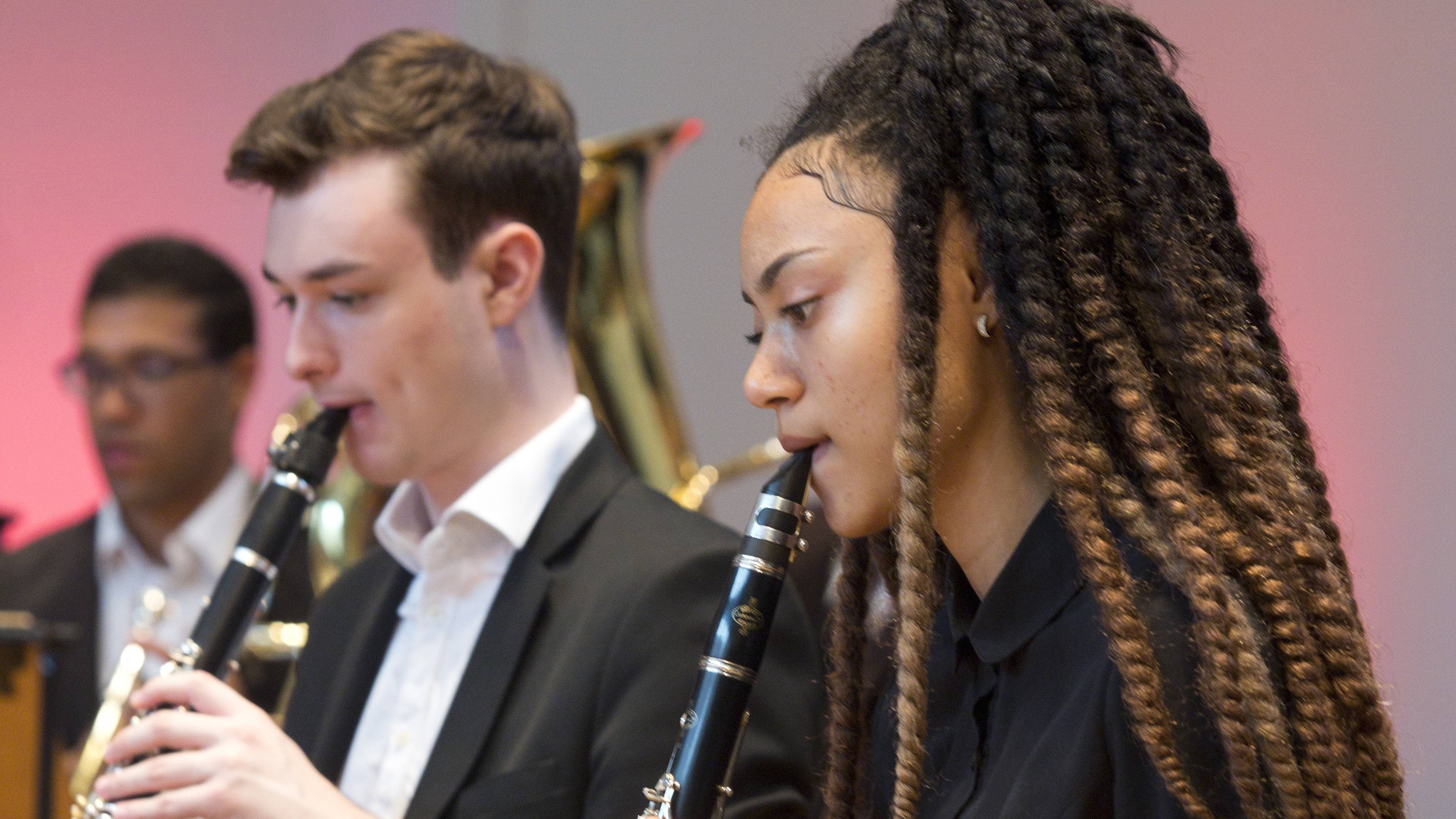
A Level Music: Distance Learning
Course details
Have you thought about studying A-Level Music by distance-learning?
If you are hoping to study A-Level Music, either to complete your musical education or as a stepping stone to higher education in music, but are unable to find a suitable opportunity to study the subject in your local school or college, why not consider taking an A-Level Music course through Junior Trinity?
Our success rate is outstanding – over the last 3 years 100% of our distance-learning students have achieved A*-C grades, with six at A* in 2020.
Detailed Information
How does the course run?
Since 2009 we have offered a unique high-quality A Level Music course involving weekly lessons in small groups using a video conferencing platform, together with one-to-one composition tutorials with a specialist composer and on-going performance work with students’ own instrumental or vocal tutors.
Students benefit from a wealth of A-Level teaching experience from a range of academic tutors who are or have been Heads of Music in schools and colleges and examiners for A-Level examination boards. Junior Trinity enters about 40 students every year for GCSE and A-Level Music examinations; distance-learning students become part of this cohort. Distinctive high-points of the course twice a year are the visits on Saturdays to Junior Trinity in the Old Royal Naval College, Greenwich, when distance-learning students become junior conservatoire students for a day.
Are you suited to our A-Level course?
Most students are in the 16-19 age group and are following other academic courses at school or college, or at home. Students need to be independent and highly self-motivated, working confidently on their own, although at the same time always in close contact with their tutors through email and video link. At the start of the course we expect students to have an above average performance standard and a genuine interest in composition, as well as real fluency in music theory and literacy and excellent English language skills. There are significant bonuses with this course: as well as all the benefits of becoming a junior conservatoire student, small teaching groups mean that tutors and students gets to know each other very well and tutors can cater for individual students’ needs to support them fully and develop their specific interests.
What our students and parents say:
“I think the course is fantastic! The contact time may seem minimal on the surface, however it’s very high quality and concentrated and also quite personal which I like. You get a lesson plan at the start of every week with regular homework that is marked meticulously. The day at Trinity was great as you actually get to meet the people on the video calls. It’s action packed with a range of tutors. If you are considering this, you are most definitely in safe hands! Not a single lesson has been cancelled this academic year and the lessons are always engaging. It has exceeded my expectations.” – DL AL1 student
“The composition sessions are really interesting, and having never done any before, it was a really interesting experience to learn how it works. Overall I feel like I’ve learnt a lot while studying: it’s opened me up to all sorts of different music that I wouldn’t have sought out otherwise and has given me a better understanding of the music that I do listen to.” – DL AL1 student
“You guys were amazing, so supportive and the quality of lesson plans etc that you sent through was phenomenal.” – DL AL2 parent
“Thanks for your kind report and most of all thanks so much for giving me the chance to do the course, being so much older. I learnt so much and I am so glad I did it.” – DL AL2 mature student
